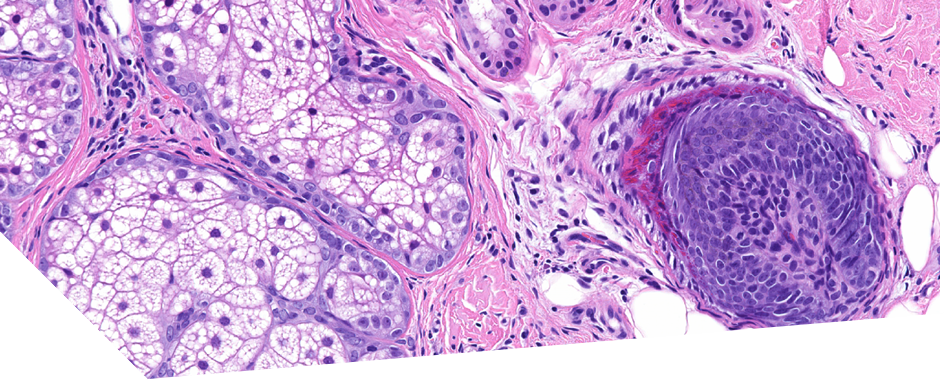Are JAK inhibitors the future for management of Alopecia Areata?
In a recent edition of Nature an exciting new approach to managing alopecia areata was discussed. The research team demonstrated the crucial role of a particular white blood cell, known as the cytotoxic CD 8 T lymphocyte, more specifically the CD8 NKG2D T Cell. In a mouse model it was demonstrated that this cell promotes the development of alopecia areata and leads to the autoimmune attack on the hair follicle. It is likely that the CD8 cells produce Interferon gamma which leads to collapse of the normal immune privilege that surrounds a healthy hair follicle. In turn another cytokine (chemical messenger) is produced, - interleukin 15. These chemical messengers exert their effect by various pathways and one of the crucial elements downstream is maintained by the Janus Kinase (JAK) family of proteins. Blocking the JAK pathway would therefore prevent inflammation that leads to hair loss.
The researchers demonstrated that by blocking the JAK pathway in mice, using inhibitors already developed for other diseases they were able to cause the mice with alopecia to completely regrow their hair. A systemic form of the same drug has been tested on a few patients with advanced and longstanding alopecia and this has caused hair regrowth too. Any maybe most exciting of all, topical formulations of the same drugs were shown to work too, meaning it may be possible to treat humans with alopecia with a topical JAK inhibitor. Of course this is very early days and larger studies need to investigate both efficacy and potential side effects and whether the topical formulation will work as well as systemic drugs, but for the first time ever new knowledge of a disease process is being used to develop a specific targeted therapy for alopecia areata.


